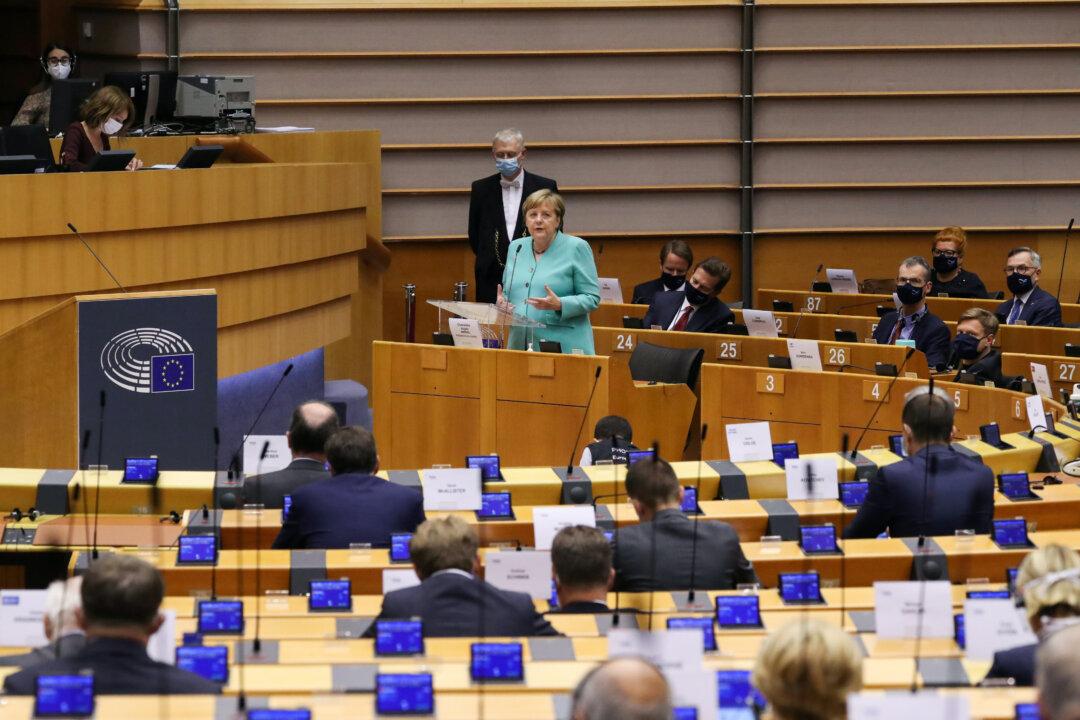BRUSSELS/BERLIN—German Chancellor Angela Merkel on Wednesday called for a swift agreement on the European Union’s mass economic stimulus to advance unity that would strengthen the bloc as it recovers from the coronavirus crisis.
Speaking to European lawmakers in Brussels as Germany assumed the EU presidency until the end of the year, Merkel called the pandemic the biggest challenge ever for the EU, where the eurozone economy is set to shed a record 8.7 percent this year.





